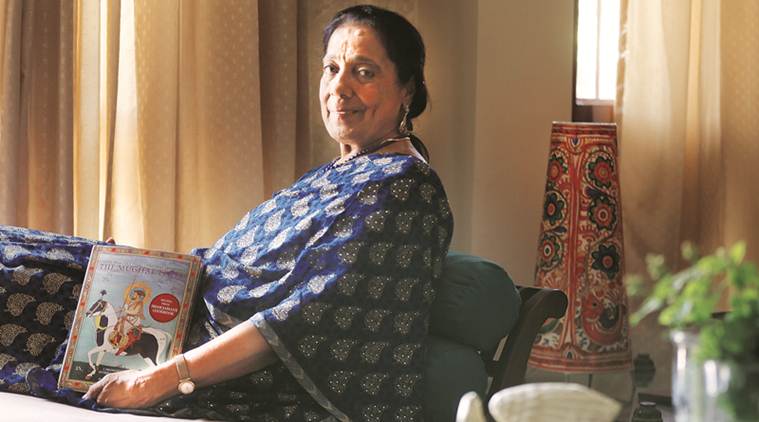Written by Surbhi Gupta |Updated: May 22, 2019 9:07:05 am
Food historian Salma Yusuf Husain brings back recipes from Shah Jahan’s dastarkhwan
During her research, Husain also travelled across central Asia, including Tashkent, Bukhara and Samarkand, and discovered how noodles and pastas were also present in the Mughal kitchen.

When Mughal emperor Aurangzeb deposed his father Shah Jahan and imprisoned him, legend has it that he allowed him only one ingredient of his choice for the rest of his life. And Shah Jahan chose chickpeas. “A great source of protein, chickpeas can be cooked in many different ways — in soups, chicken, pulao, dal or halwa — that’s how the emperor survived his last years,” says food historian Salma Yusuf Husain. “But when Shah Jahan was the ruler, his dastarkhwan was a riot of colours and flavours. Paneer used to be of seven different colours, so was kofta and pulao. For instance, they used to cook half the rice in fresh pomegranate juice and the other half in water. These two varieties were later mixed and coated with silver warakh. This was for the Yakuti pulao; yakut means ruby in Persian,” she adds.
Recipes of such colourful and flavour-rich dishes make The Mughal Feast (Roli Books, Rs 1,495), which is a transcreation of Nuskha-e-Shahjahani, a Persian recipe book dating back to Shah Jahan’s rule. Divided into eight chapters, it has recipes for an assortment of naans, aash (soups), qaliyas and do-piyazahs, bharta, zeer biryani, kababs and other sweetmeats. “Unfortunately, the last chapter of the manuscript — on murabbas and pickles — is missing; we tried hard but couldn’t find it,” says Husain.
Recipes of such colourful and flavour-rich dishes make The Mughal Feast (Roli Books, Rs 1,495), which is a transcreation of Nuskha-e-Shahjahani, a Persian recipe book dating back to Shah Jahan’s rule. Divided into eight chapters, it has recipes for an assortment of naans, aash (soups), qaliyas and do-piyazahs, bharta, zeer biryani, kababs and other sweetmeats. “Unfortunately, the last chapter of the manuscript — on murabbas and pickles — is missing; we tried hard but couldn’t find it,” says Husain.










.png)











No hay comentarios:
Publicar un comentario